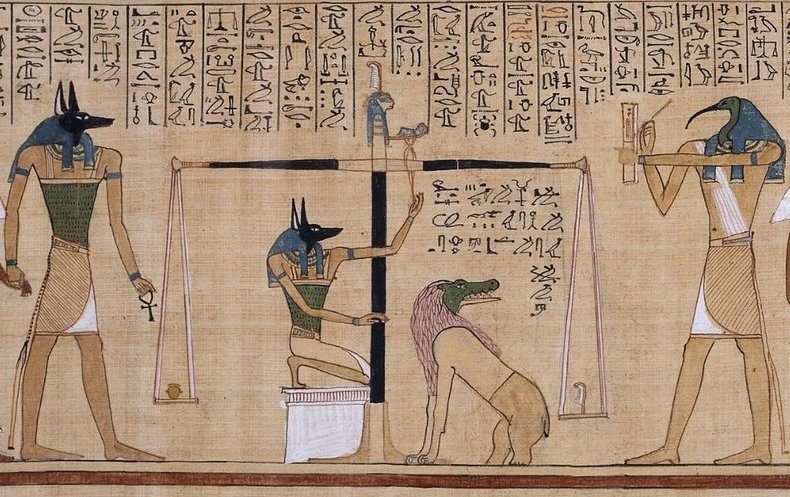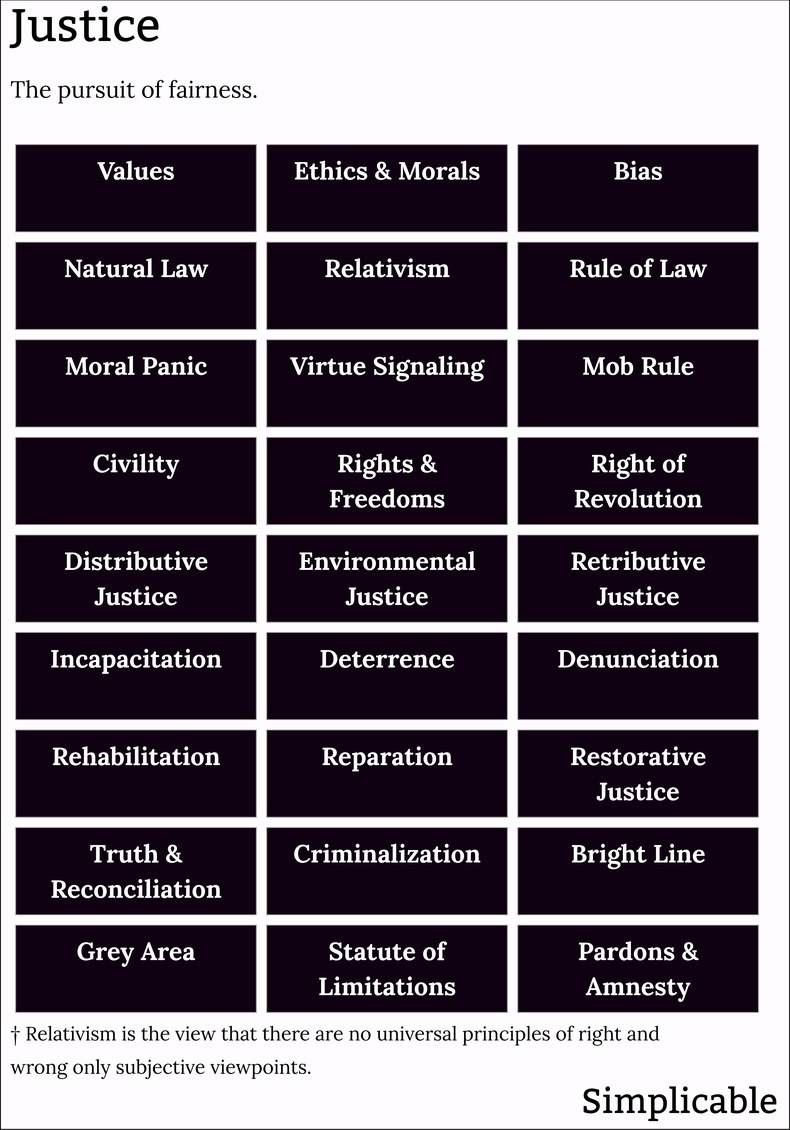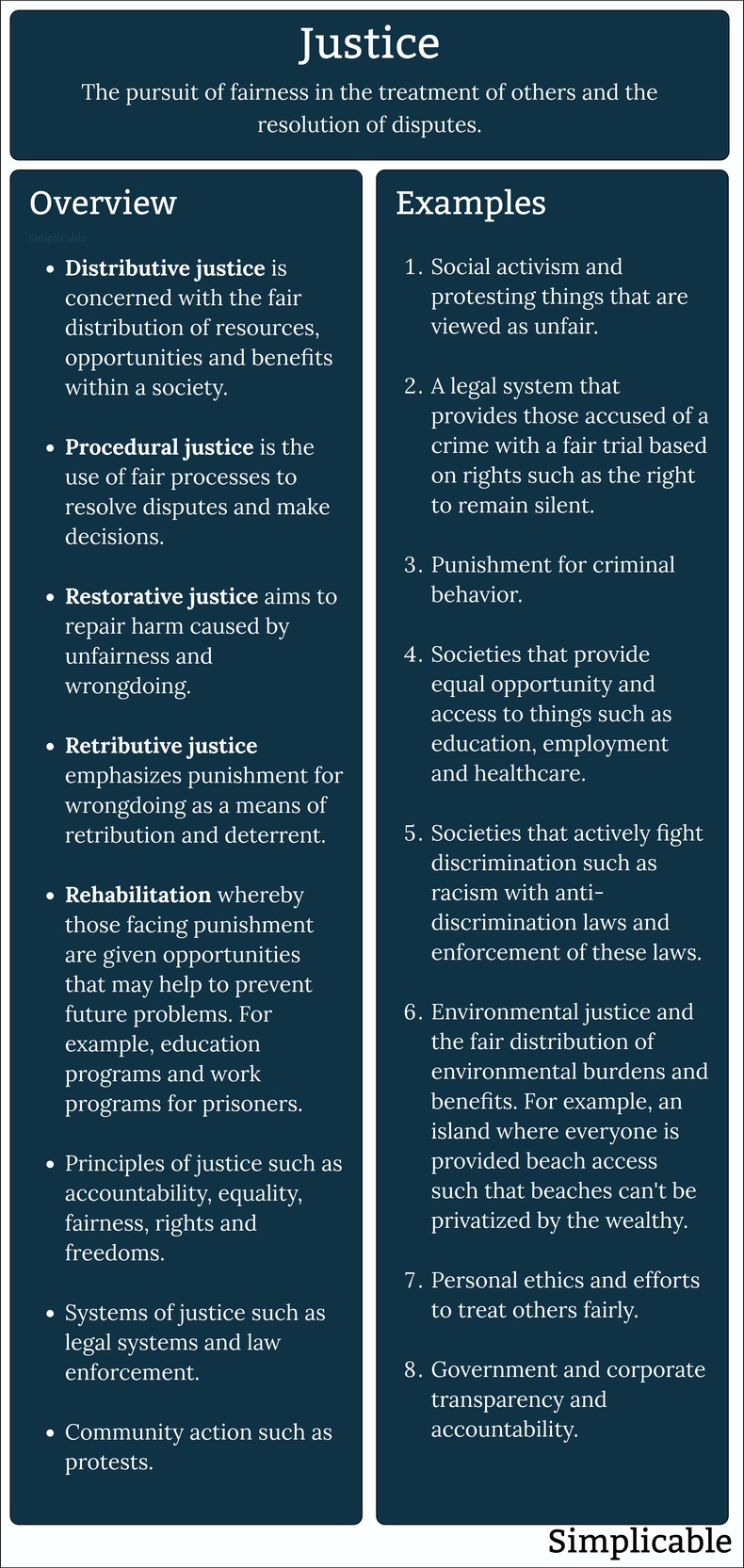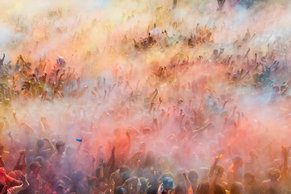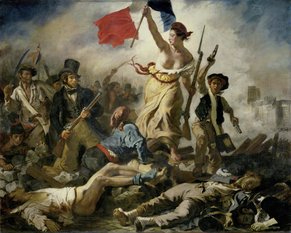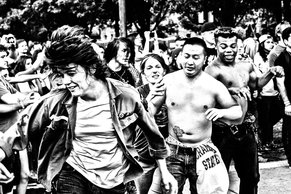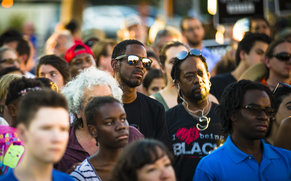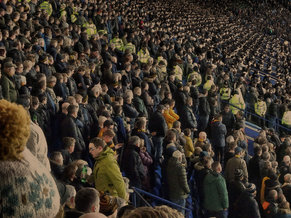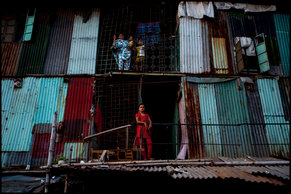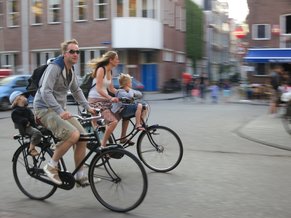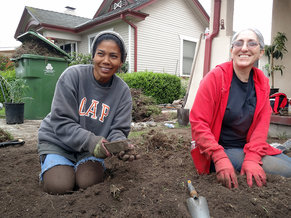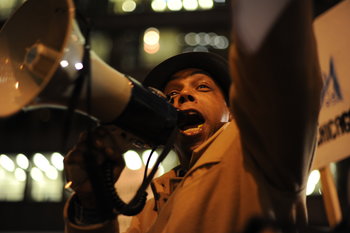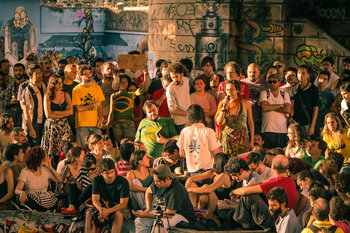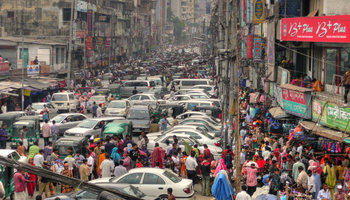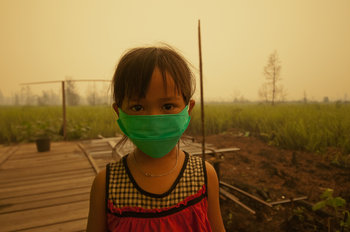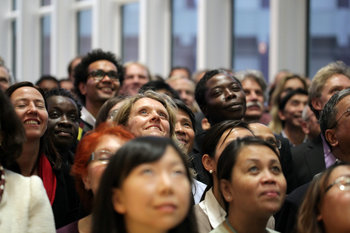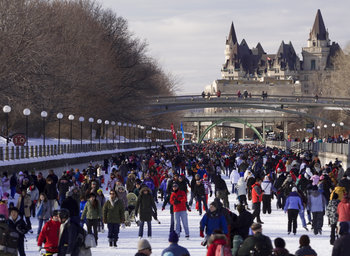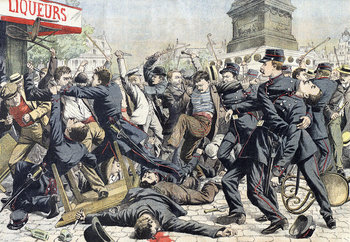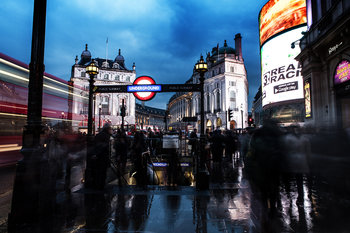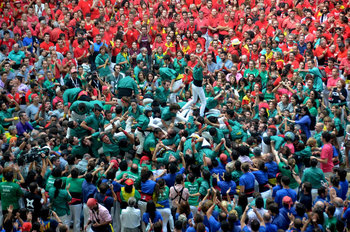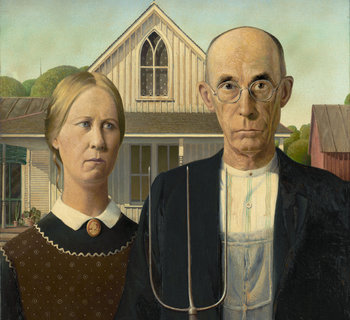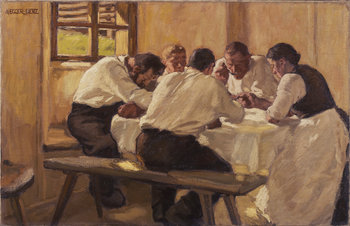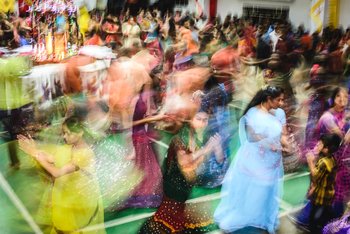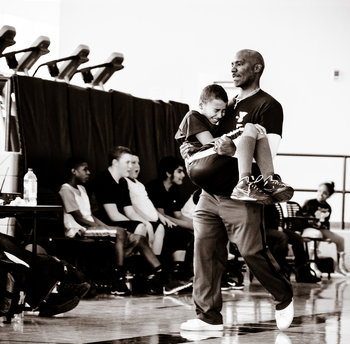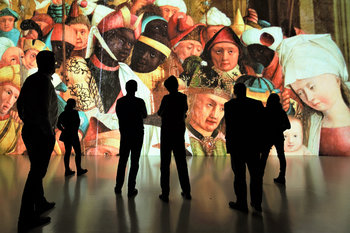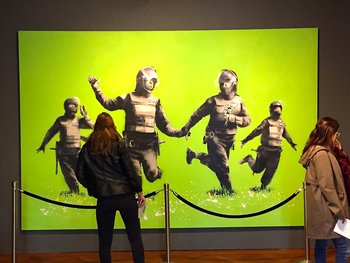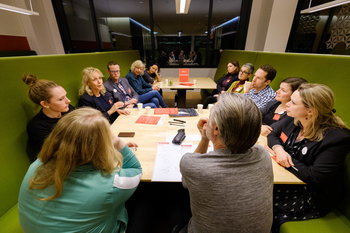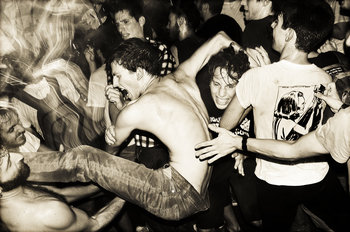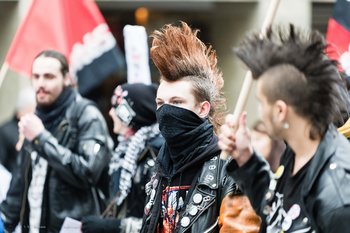|
| |
Justice is the pursuit of fairness. This is a complex and contentious subject that differs greatly from one society to the next. The following are illustrative examples of justice.
ValuesValues are foundational beliefs held by an individual, group or society. For example, the belief that individuals should be free to control their own life versus the belief that individuals should be required to sacrifice to make things better for society. An individual's values guide their view of justice.Ethics & MoralsEthics and morals are principles of right and wrong that may be adopted by an individual, group or system. In theory, such principles are used to make things more just. For example, a teacher who develops the principle that students be afforded the benefit of doubt.
BiasBiases are persistent errors of rational thought that tend to surround issues of justice. For example, ingroup bias whereby people strongly empathize with people they view as similar to themselves but lack empathy for people they view as different or outsiders.Natural LawNatural law is the idea that there are universal truths of justice that can be applied to any situation. For example, it is common for the constitutions of nations to be based on the idea of natural law.We hold these truths to be self-evident, that all men are created equal, that they are endowed by their Creator with certain unalienable Rights, that among these are Life, Liberty and the pursuit of Happiness.
~ The United States Declaration of Independence, JULY 4, 1776 RelativismRelativism is the idea that there are no universal truths and that everything is specific to a culture, individual and situation. For example, an individual who feels they have a right to create their own philosophy and enforce it in their dealings with society. Relativism is a cornerstone of postmodernism. If relativism signifies contempt for fixed categories and those who claim to be the bearers of objective immortal truth … then there is nothing more relativistic than Fascist attitudes and activity... From the fact that all ideologies are of equal value, that all ideologies are mere fictions, the modern relativist infers that everybody has the right to create for himself his own ideology and to attempt to enforce it with all the energy of which he is capable.
~ Benito Mussolini, Diuturna (1921) as quoted in Rational Man : A Modern Interpretation of Aristotelian Ethics (1962) by H. B. Veatch Rule of LawThe rule of law is when a society implements clear, publicized, open and stable laws that are applied evenly according to an independently adjudicated process that makes everyone accountable to the law with no individual above the law regardless of position or status.Moral PanicFear and misinformation that drives an excessive pursuit of justice that creates injustice.Virtue SignalingVirtue signaling is when individuals seek social status by signalling support for popular causes. This may involve a pursuit of justice whereby an individual calls out bad behavior or seeks to socially penalize those accused of wrongdoing. Virtue signalling is often based on misinformation such as rumors.Mob RuleA group of people who attempt to penalize perceived wrong doing without any legitimate authority. This is often done on the basis of rumor without any due process such that it results in injustice.CivilityCivility is the duty to work within a reasonable system in good faith to seek justice according to the rule of law.Rights & FreedomsGuarantees of freedoms and entitlements. This is a critical element of justice that prevents laws, rules and regulations from crushing the individual pursuit of happiness.Right of RevolutionThe right or duty to overthrow an extremely oppressive system. For example, the French Revolution overthrew a monarchy that had bankrupt the state with spending on luxuries and wars.Distributive JusticeDistributive justice is the fair distribution of goods. This has various viewpoints from the idea that people should be able to keep what they earn to the idea that goods be distributed completely evenly without any economic incentives to be productive and innovative. These two viewpoints are manifested as capitalism and communist systems on the far ends with many degrees of social market economy between these extremes.Environmental Justice Environmental justice is the fair distribution of environmental benefits and burdens of pollution. For example, the idea that it is unfair for one generation to leave the planet in a more polluted state than they inherited it such that subsequent generations face greater risks and less quality of life.Retributive JusticeJustice motivated by a sense of revenge with the idea that those who cause suffering must suffer in return.IncapacitationProtecting the public by incarcerating individuals who have demonstrated that they are dangerous.DeterrenceJustice that is intended to act as a deterrence to shape behavior in a society. For example, fines that are designed to reduce dangerous driving habits such as distracted driving.DenunciationJustice that is used to demonstrate the values of society by showing that a particular behavior will not be tolerated. For example, a society that makes an example of a corrupt politician with a harsh sentence designed to prevent corruption.RehabilitationJustice that is designed to address the root causes of crime. For example, programs that provide offenders with education and work experience such that they may be less likely to reoffend.ReparationEncouraging an offender to make amends to a victim with a public apology, acceptance of responsibility, demonstrations of regret, guarantees of non-repetition and monetary restitution. It is common for a justice system to be focused on reparation over retribution. In this case, reparation may be used as an alternative to other forms of punishment where the offender demonstrates genuine regret.Restorative JusticeThe combination of rehabilitation of offenders and reparations to victims as goals of justice. Truth & ReconciliationA process of justice that seeks to restore friendly relations between groups by airing the truth and pursuing restorative justice that eases tensions.CriminalizationCriminalization is the process whereby individuals in a society are labelled as criminal. In some cases, a society makes common behaviors illegal such that a high percentage of people are technically "criminals." This label can dramatically impact the opportunities available to a person and can lead to a worsening of behavior out of desperation.A law or rule that doesn't allow for consideration of context such as extenuating circumstances. Laws and rules commonly allow for consideration of context, nuance and exceptions.Statute of LimitationsA type of law or constitutional right that states that justice be served in a timely manner or not at all. For example, in most countries you can't suddenly receive 100 speeding tickets based on new analysis of 30 year old videos of traffic. Pardons & AmnestyA pardon is the practice of forgiving an individual for an offense and clearing their record. An amnesty is a pardon that applies to many individuals. For example, a government may pardon millions of minor offenses at a point in time.SummaryJustice is the pursuit of fairness. This is a complex and contentious topic that includes many competing viewpoints and approaches.OverviewJustice is the pursuit of fairness in the treatment of people and the resolution of disputes. This can be applied at the level of a society, institution, organization, community or as an individual.Next: Social Justice
If you enjoyed this page, please consider bookmarking Simplicable.
The definition of social mobility with examples.
The common types of equality.
The definition of society with examples.
The basic characteristics of a social market economy.
The definition of political polarization with a list of its basic characteristics.
The difference between freedoms and rights with many examples.
The difference between society and culture explained with examples.
An overview of the importance of technology.
The definition of echo chamber with examples.
The definition of worldview with examples.
The definition of norms with examples.
The difference between shy and reserved behavior explained.
The definition of social construct with examples.
The definition of broken window theory with examples.
The definition of mores with examples.
The definition of humility with examples and counter examples.
A list of examples of culture.
The definition of duty with examples.
The definition of cultural diffusion with interesting examples.
The definition of tolerance with examples.
TrendingThe most popular articles on Simplicable in the past day.
Recent posts or updates on Simplicable.
Site Map
© 2010-2023 Simplicable. All Rights Reserved. Reproduction of materials found on this site, in any form, without explicit permission is prohibited.
View credits & copyrights or citation information for this page.
|
